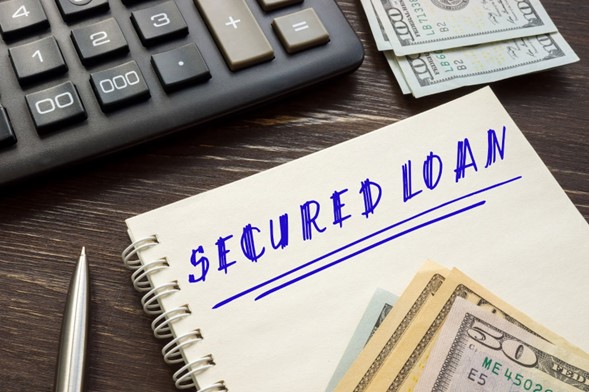When you’re shopping for a secured loan, the quote you receive isn’t pulled out of thin air. Behind every rate is a careful calculation that considers a variety of factors. Ever wondered why one person gets a lower rate than another? Understanding the key elements that lenders evaluate can not only demystify the process but also help you position yourself for a more competitive offer.
The Role of Your Credit Score
Your credit score is one of the first things a lender looks at when determining your loan rate. Think of it as your financial reputation. A strong credit score tells lenders you’ve handled debt responsibly in the past, making you a lower-risk borrower. Lower risk often equals lower interest rates. On the flip side, a poor credit score might signal that lending to you carries more risk, and lenders compensate for this by offering higher rates. If you’re unsure about your credit standing, it’s a good idea to check your score before applying. There are even ways to improve it, such as paying down existing debts or correcting any inaccuracies in your credit report.
The Value of the Collateral
Since secured loans are backed by collateral—whether it’s your home, car, or another valuable asset—the lender will closely assess what you’re putting on the line. The higher the value of the collateral, the more security the lender has, which can lead to better secured loan quotes. For instance, a loan secured against a high-value property might come with lower interest than one secured against a lower-value car. The type of asset also matters. Property, for example, is considered a more stable form of collateral than something like a vehicle, which depreciates over time.
Loan Amount and Term Length
The size of the loan and how long you want to borrow it for are major factors too. Lenders often reserve their best rates for larger loan amounts because these are more profitable over time. However, there’s a balance to strike—if you’re borrowing a very small amount, the lender might charge higher rates to cover their administrative costs. Similarly, the loan term impacts your rate. Shorter terms tend to come with lower rates, but they’ll require higher monthly repayments. Longer terms spread out the cost, which could mean slightly higher rates but lower monthly payments. It’s worth considering what works best for your budget before deciding.
Your Employment and Income
Lenders want to know that you can comfortably afford to repay the loan. This is where your employment status and income come into play. Stable, long-term employment is a green flag for lenders, as it indicates steady income. Self-employed? Don’t worry—it just means you might need to provide additional documentation, such as tax returns or bank statements, to prove your earnings. If your income fluctuates or feels stretched by other financial commitments, this might lead to higher rates because of the perceived risk. Keeping your debt-to-income ratio in check can work in your favour when negotiating rates.
Current Economic Conditions
Here’s something borrowers often overlook: the state of the economy can influence the rates lenders offer. In times of economic stability, lenders might feel more confident about offering lower rates. Conversely, if the economy is uncertain or interest rates set by the central bank are rising, lenders are likely to pass those costs onto borrowers. While you can’t control the economy, timing your loan application during periods of lower interest rates could save you money.
Lender-Specific Criteria
Not all lenders are the same. Each has its own way of assessing risk and setting rates. Some lenders specialise in offering competitive rates for certain types of borrowers, like homeowners or those with excellent credit, while others might focus on borrowers with more complex financial situations. It pays to shop around. Comparing quotes from multiple lenders ensures you’re not leaving money on the table. Online comparison tools can be a great help here, but don’t forget about speaking directly with lenders. Sometimes, a personal conversation can lead to insights or even a better offer.
Additional Fees and Costs
It’s not just about the headline rate. Many secured loans come with additional fees, such as arrangement fees, valuation fees, or even early repayment charges. These can impact the overall cost of the loan and should be factored into your decision-making. A lower interest rate might seem attractive at first glance, but if it’s paired with high fees, the deal might not be as good as it seems. Always look at the APR (Annual Percentage Rate) to get a clearer picture of the total cost.
How to Get the Best Rate
Now that you know what goes into a secured loan quote, let’s talk about how you can tip the scales in your favour. Start by reviewing your credit score and taking steps to improve it if needed. Aim to pay down existing debts and avoid applying for multiple credit products in a short space of time, as this can lower your score. Next, evaluate the value of the collateral you plan to offer. If it’s not sufficient, consider alternatives that might give lenders more confidence. When it comes to income, be prepared to provide detailed documentation and consider how your debt-to-income ratio looks from a lender’s perspective. Finally, don’t rush into the first offer. Take time to compare quotes and negotiate where possible—you’d be surprised how flexible some lenders can be when they want your business.
Is Now the Right Time?
Deciding when to apply for a secured loan can make a big difference. If you know your credit score could use a boost or your income situation is about to improve, it might be worth holding off for a few months. Similarly, keep an eye on broader economic trends. Interest rates tend to ebb and flow, and catching a favourable window could save you significant money over the life of the loan.
Understanding how lenders determine rates doesn’t just make you a more informed borrower—it gives you the tools to secure a better deal. By focusing on what lenders value most, you can present yourself as an ideal candidate and potentially save thousands over the term of your loan. So, whether you’re planning a big renovation or consolidating existing debts, a bit of preparation and knowledge can go a long way.












